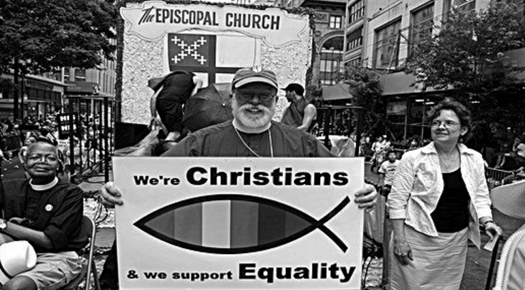
Only a day after the Anglican Church of Canada closely voted not to authorize same-sex marriage, queries about the integrity of the voting procedure surfaced, eventually leading to a reversal of the result. Over 200 delegates present at the six-day general synod this year had rejected the resolution on July 11 after listening to more than 60 speakers, most of whom voiced their support for same-sex marriage. However, the following day—which also saw the end of the triennial conference—some members claimed their ballot had not been registered during voting, which is why the resolution failed to pass by one vote.
Delegates immediately demanded a detailed hard copy of the electronic voting records, which resulted in a recount. Soon after, Archbishop Fred Hiltz declared the resolution in favor of same-sex marriage passed. The church’s resolution happens to align with Canada’s secularism, as the country legalized same-sex marriage way back in 2005. For any resolution to pass, two-thirds from each of the three orders—namely bishops, clergy and laity—are required to voice their support.
Meghan Kilty, director of communications for the Anglican Church of Canada, said 155 delegates had voted in favor of same-sex marriage while 68 voted against it, with three members refraining from voting at all. The first result was only a single vote short of what was required to pass the resolution in the religious order, which happens to be the third largest in Canada. The initial result was followed by a sour and divisive debate, stunning those on hand into silence. While some cried openly, others concealed their tears in warm embraces. Most were left feeling anguished. Before the recounting took place on July 12, Toronto’s archbishop joined other clergymen who said they would bless same-sex marriages just to defy the narrow vote.
The general synod is organized once every three years and this recent vote was the result of work that had been initiated during the last general synod, when the Anglican Church’s legislative body asked a panel to propose a draft motion.
Statistics Canada says approximately 1.6 million Canadians identify as Anglicans.
The United States Episcopal Church is alone among all Anglican bodies to approve of same-sex marriage. It has even faced backlash from religious leaders and political leaders alike for its support. Earlier this year, Anglican leaders provisionally restricted the role of the United States Episcopal Church in future global fellowship programs as well.
On June 10, Scottish Anglicans too made a historic move by allowing same-sex marriage. Even then, Anglican churches across the world condemned their decision. On Friday, the Scottish Episcopal Church voted 97-51 (with three delegates missing in action) to eliminate a part of its Canon Law that defines marriage as the union of a man and a woman. However, the change is yet to be enacted, as the church must once again win a two-thirds majority in a second vote next year. If the change does finally come into effect, same-sex couples would be able to marry in church services conducted by Scottish clergy though a conscience clause would allow individual clergy members to opt out of such a ceremony.
The vote at the Scottish Episcopal Church’s yearly synod in Edinburgh was the result of a two-year debate, which aimed at eliminating the first clause of Canon 31.
“The doctrine of this church is that marriage is a physical, spiritual and mystical union of one man and one woman,” it states.
Advocates of same-sex marriage want to replace that clause with a new one that refers to the differing understandings of the nature of marriage by different Anglicans.
“No cleric of this church shall be obliged to conduct any marriage against their conscience,” it guarantees.
While the move does put the Scottish Episcopal Church sharply at odds with the Church of England and other congregations of the global Anglican community, a victory would only cement Scotland’s reputation as being the most LGBT-friendly country in the United Kingdom.
The contention over same-sex marriage has caused bitter rifts within the Church of England for more than two decades. Even though same-sex marriage has already been legalized in England, the Church continues to prohibit religious ceremonies for same-sex couples and forbids clergy members from marrying people of the same gender. A majority vote in favor of same-sex marriage next year could lead to similar punitive measures against the Scottish Episcopal Church as those that have already been imposed on the United States Episcopal Church.
Speaking to the media, a spokesperson for the Church of England said, “The Church of England is currently engaged in a series of shared conversations on human sexuality… It would not be appropriate to comment further at this stage.”
The first vote was conducted overwhelmingly across all three orders of the Scottish Episcopal Church. While bishops voted 5-2, clergy voted 43-19 and laity voted 49-12, indicating that a two-third majority would be easily achievable in the second year as well.
Some other national Anglican churches, including those in New Zealand, Brazil and South Africa, have taken significant steps towards accepting same-sex relationships.
Photo Credits: Church Militants
